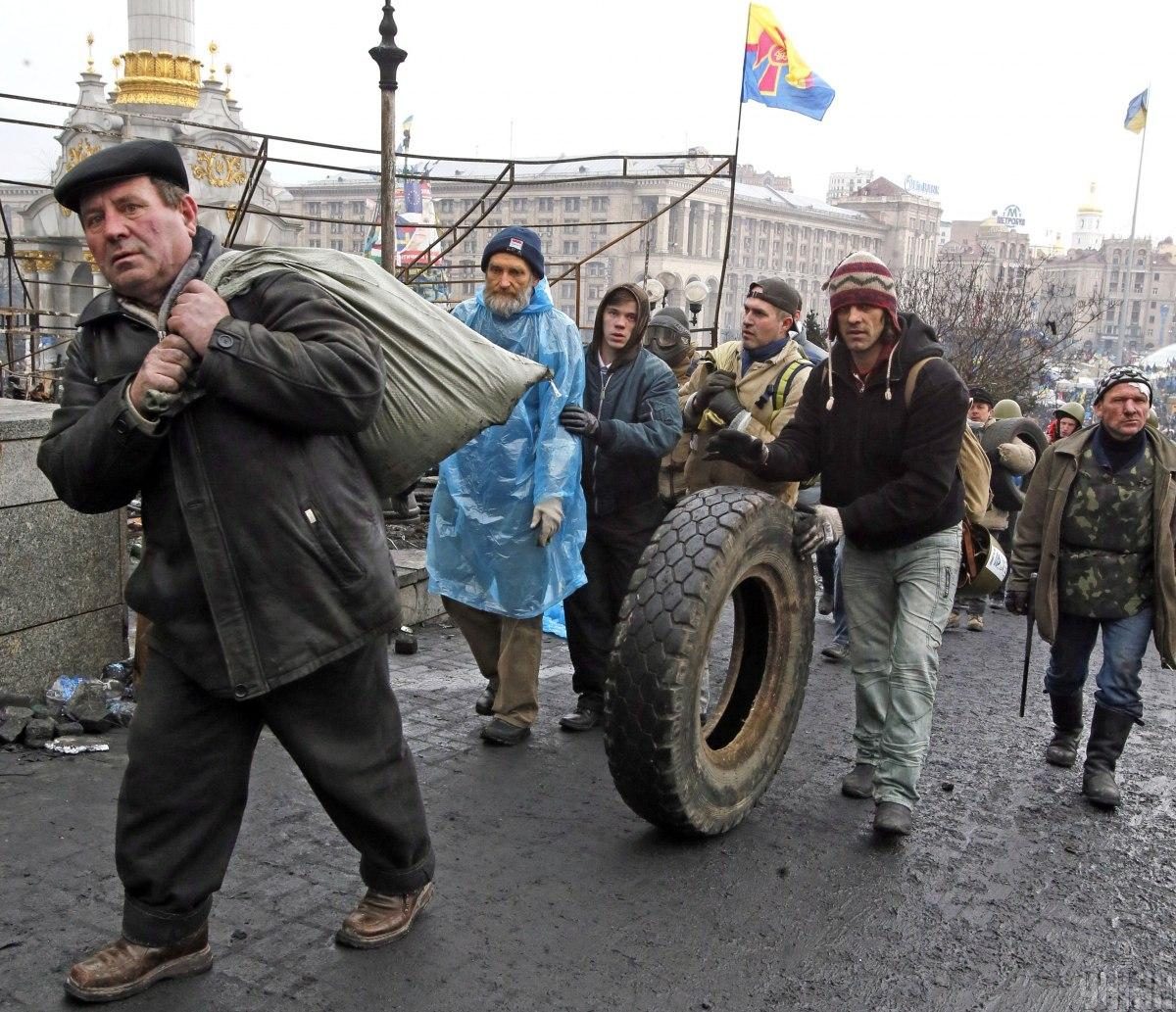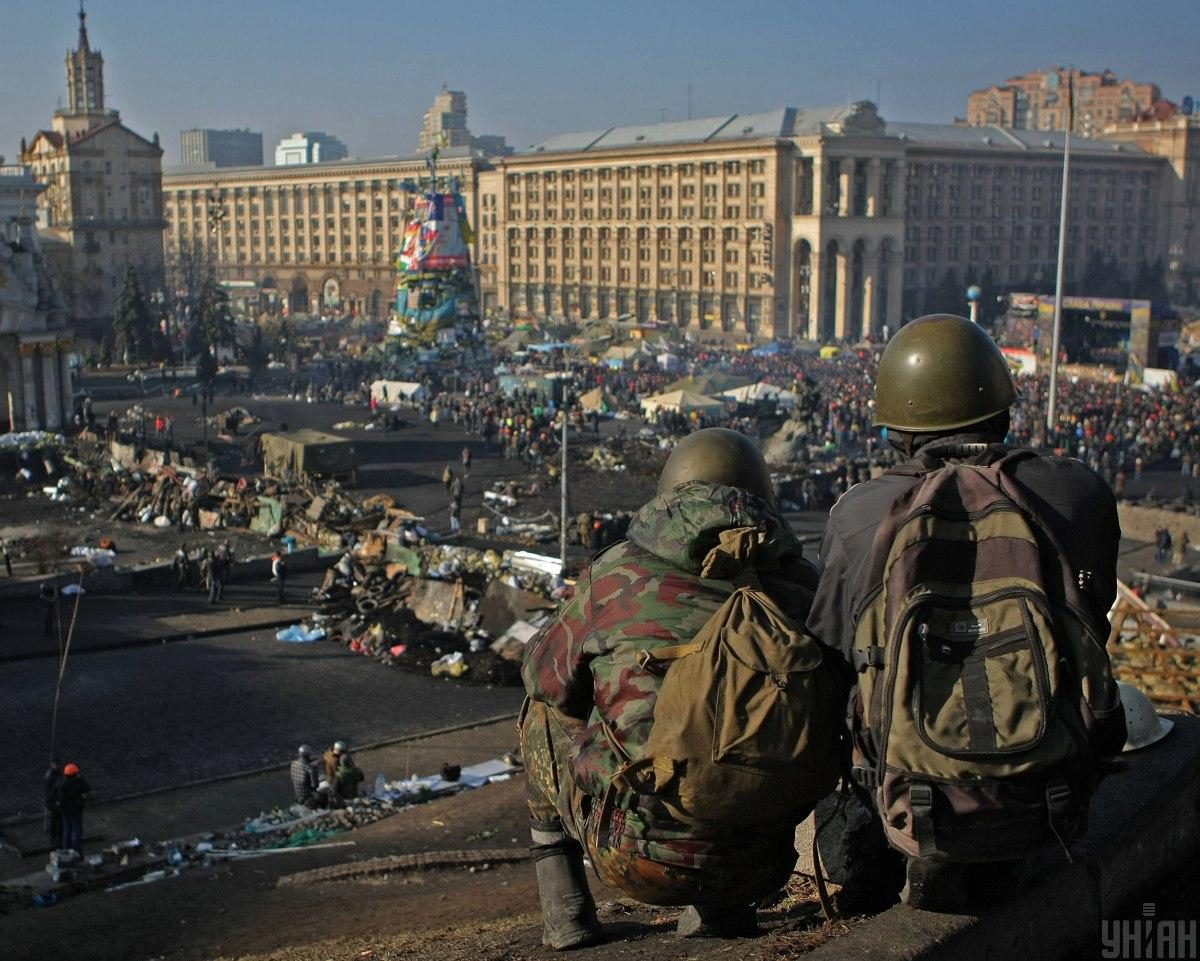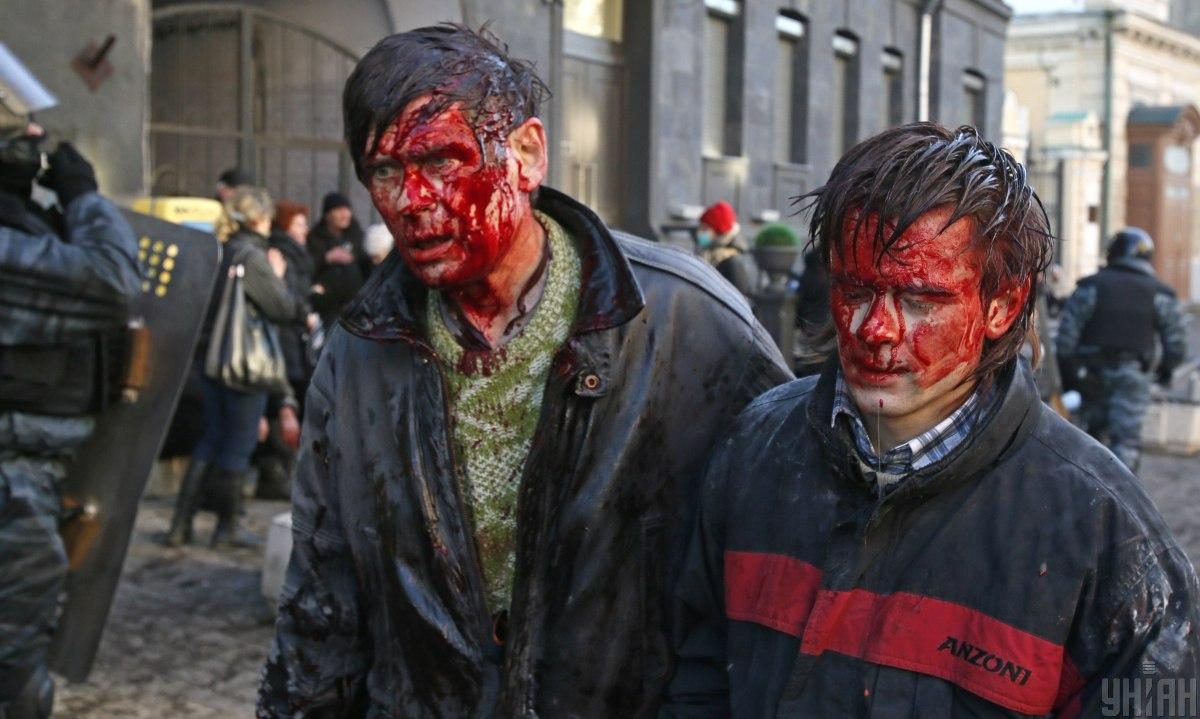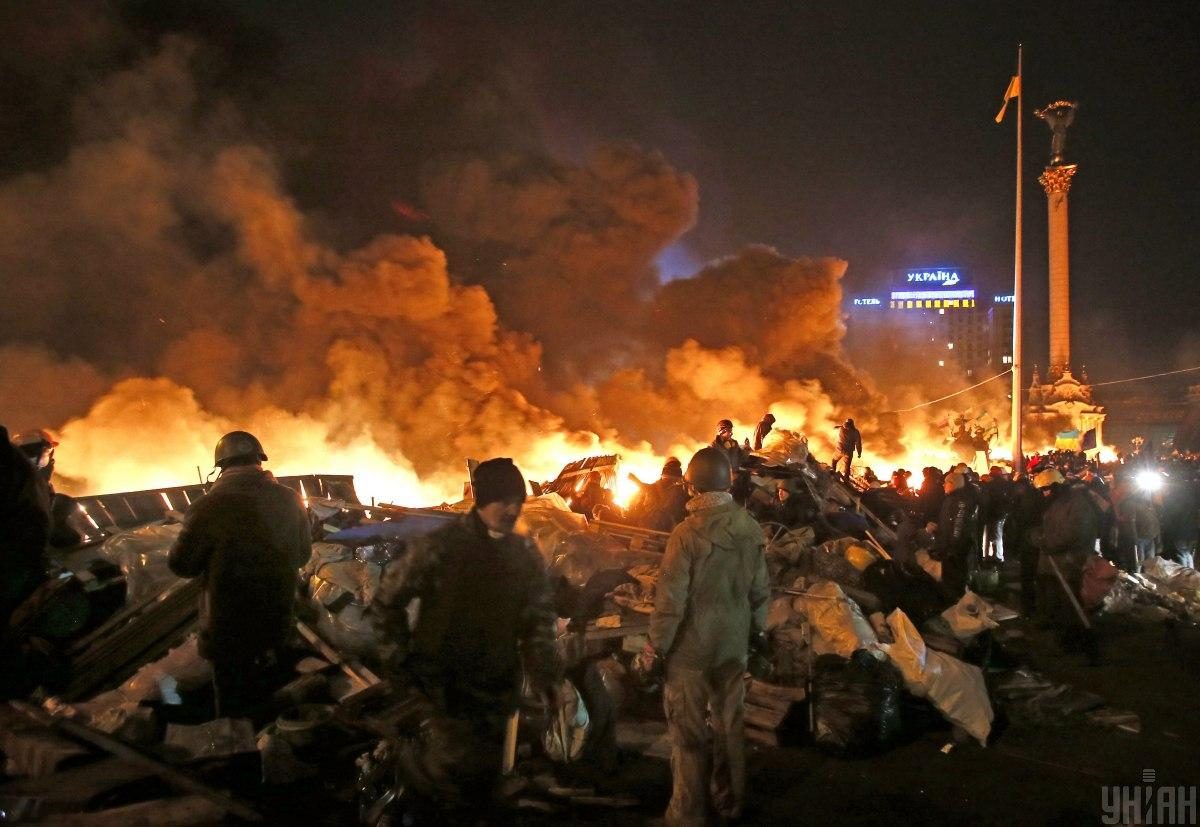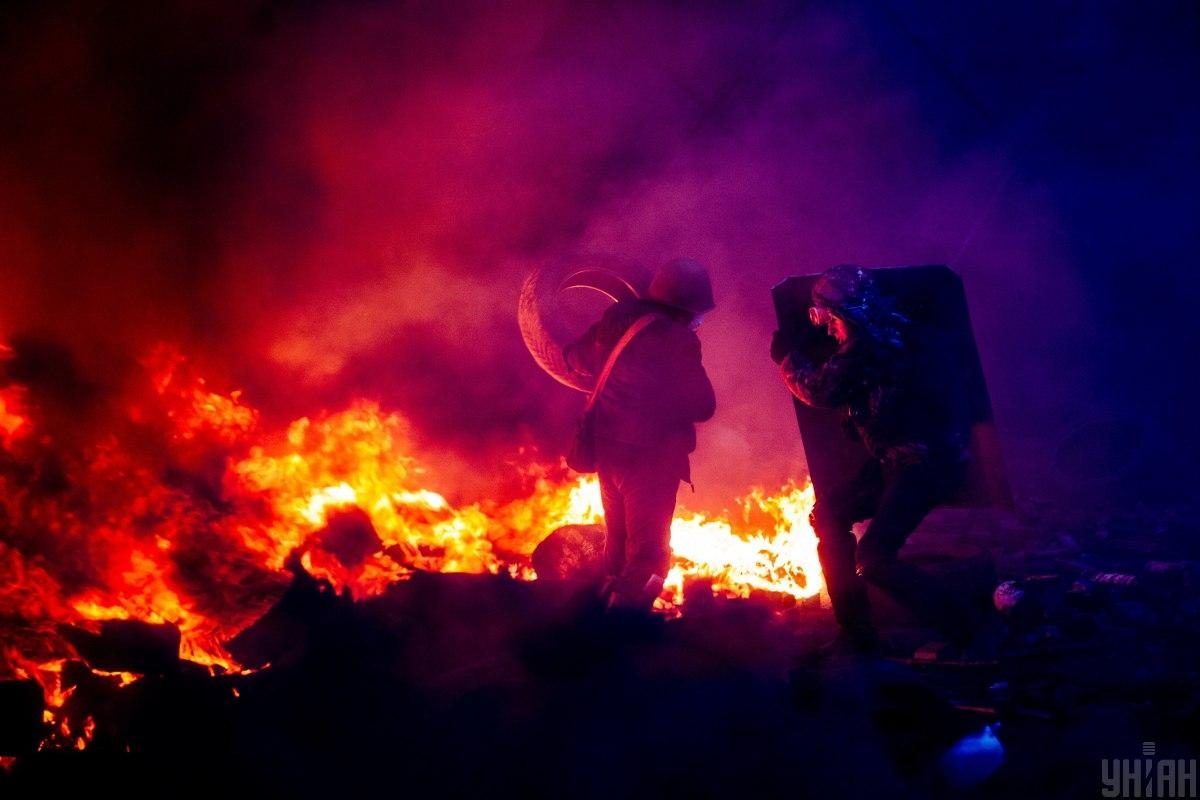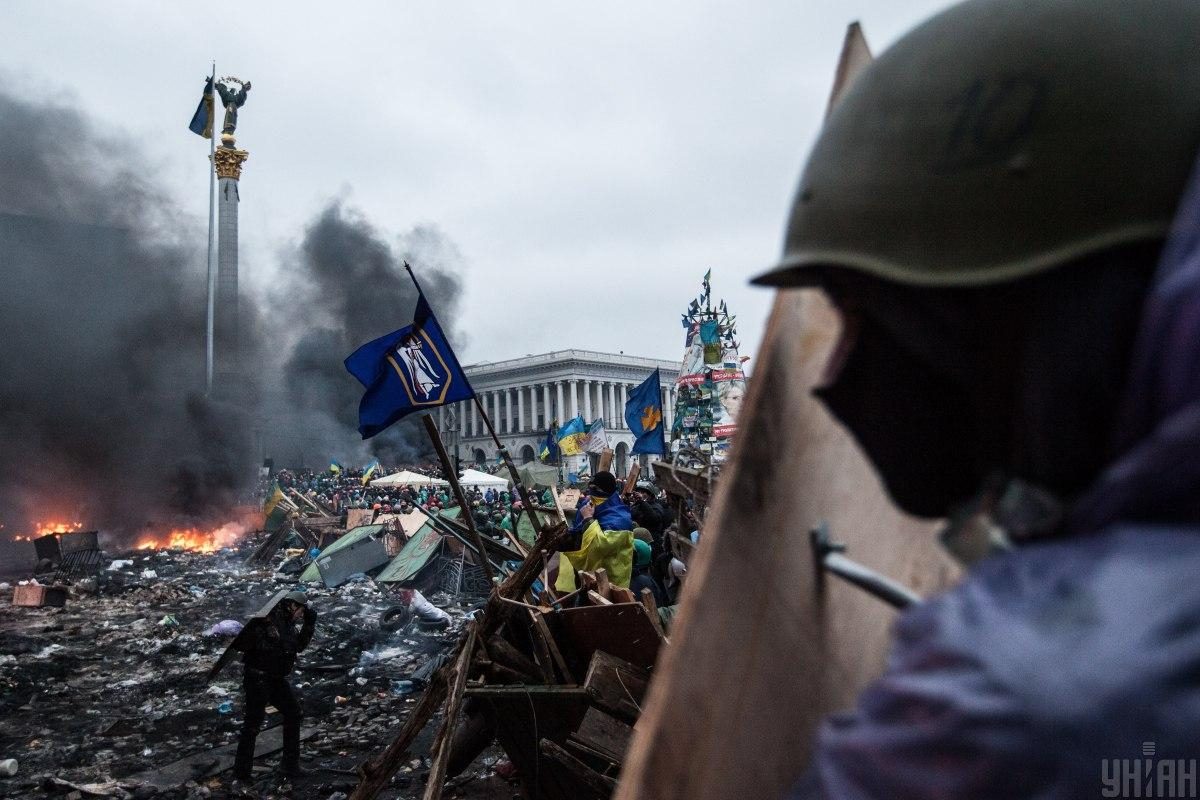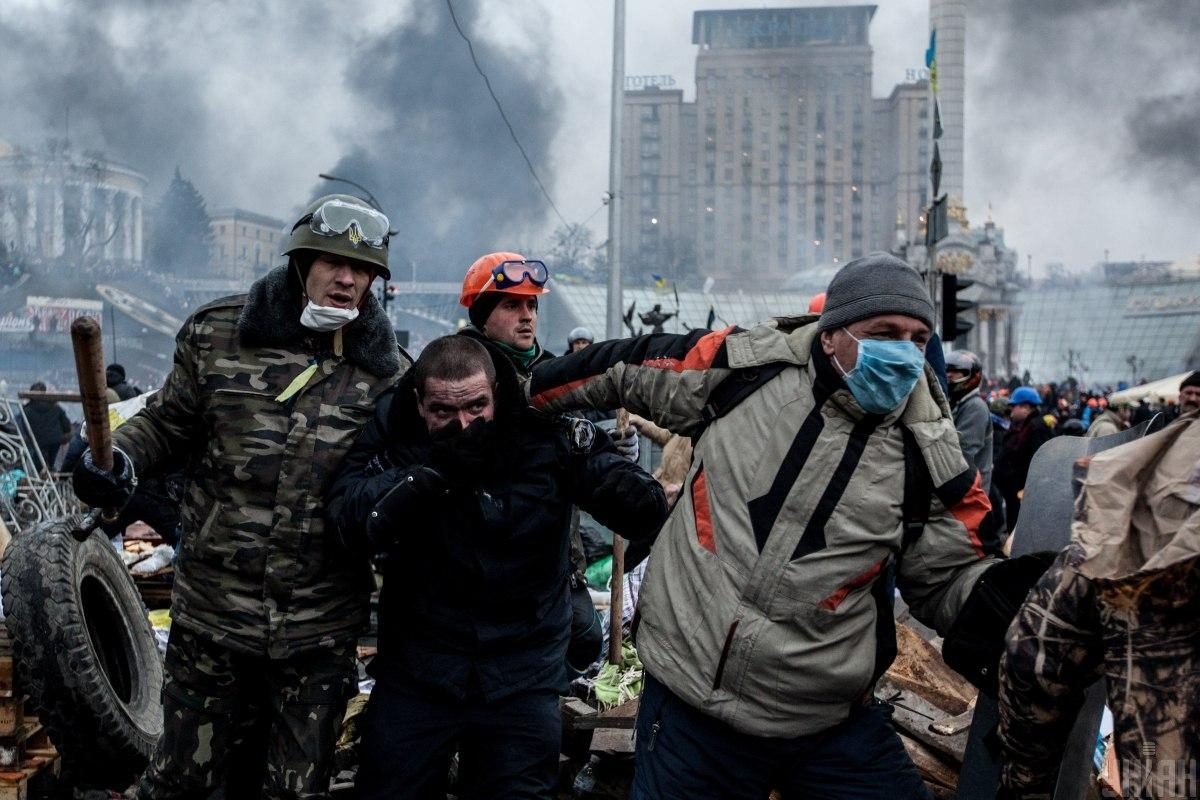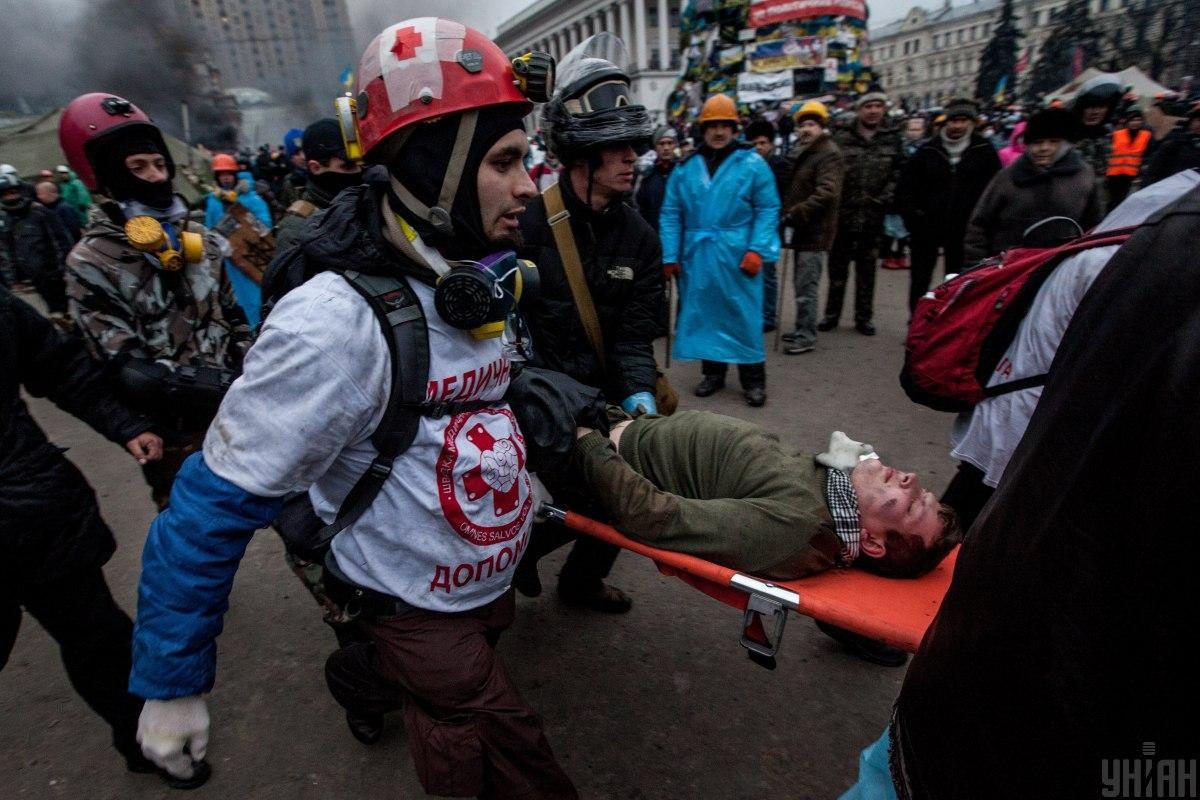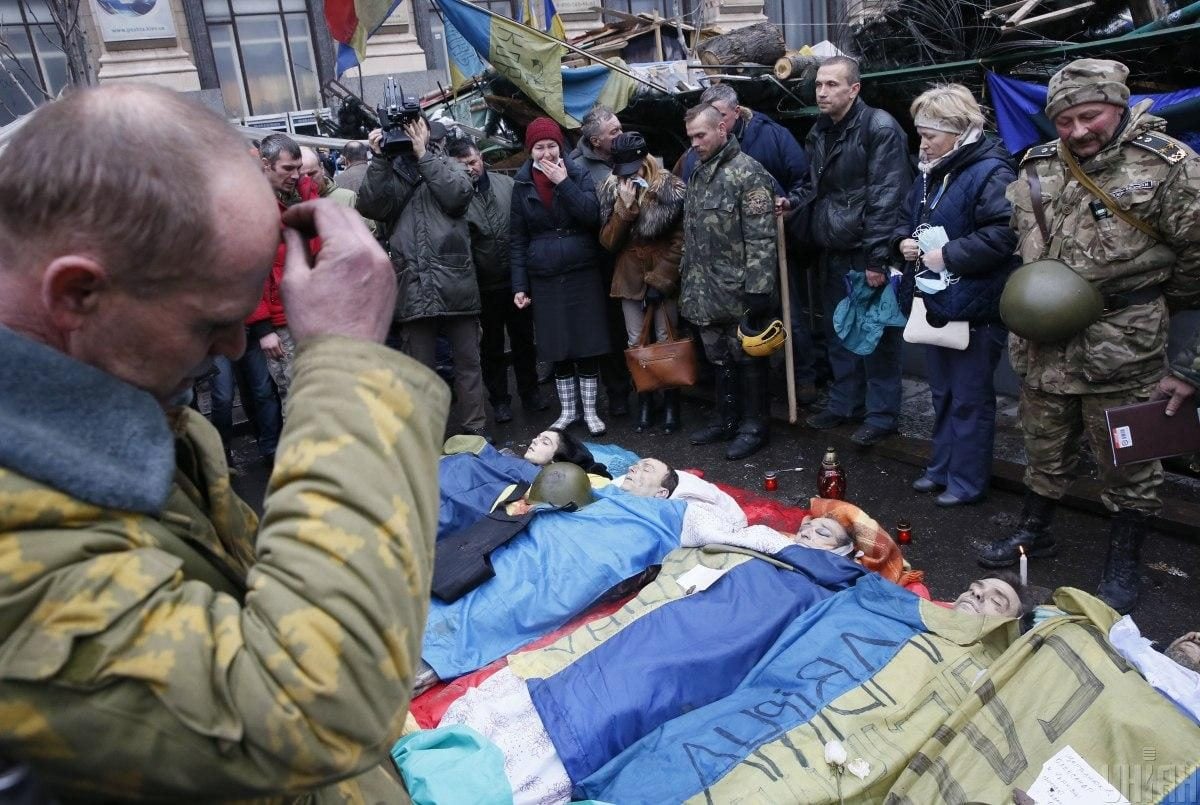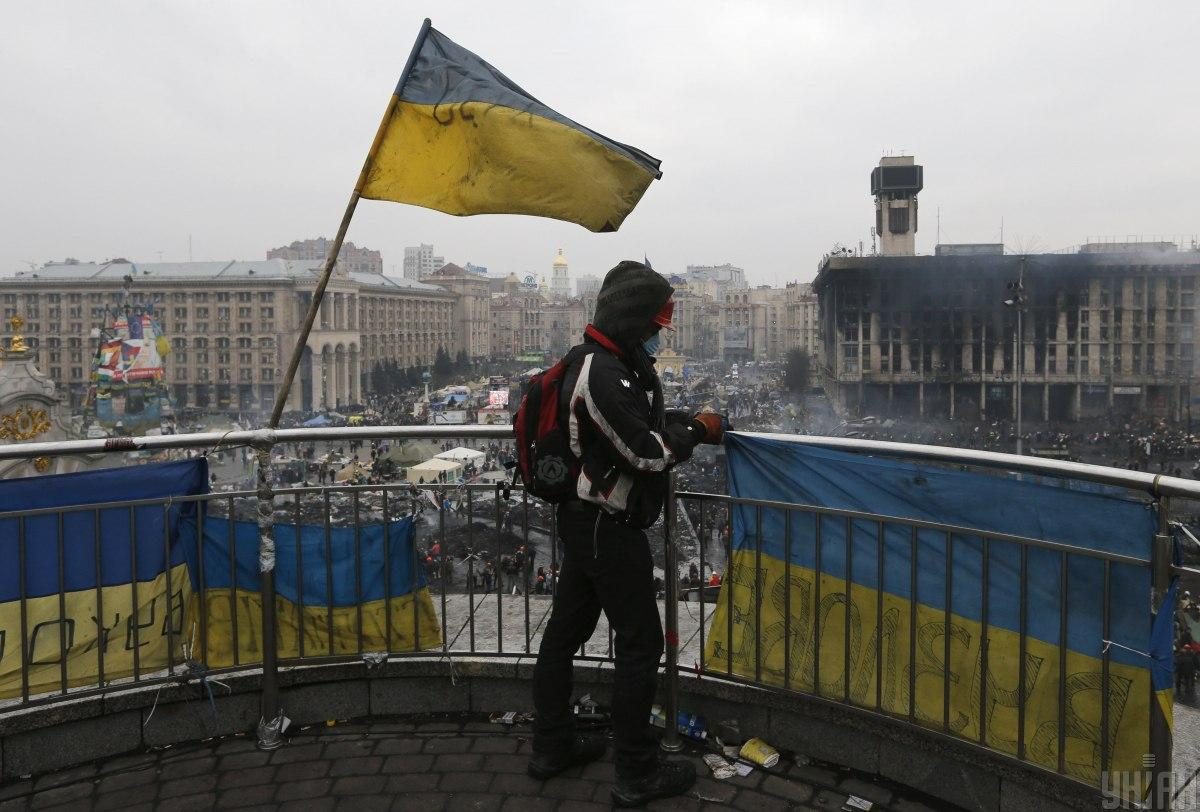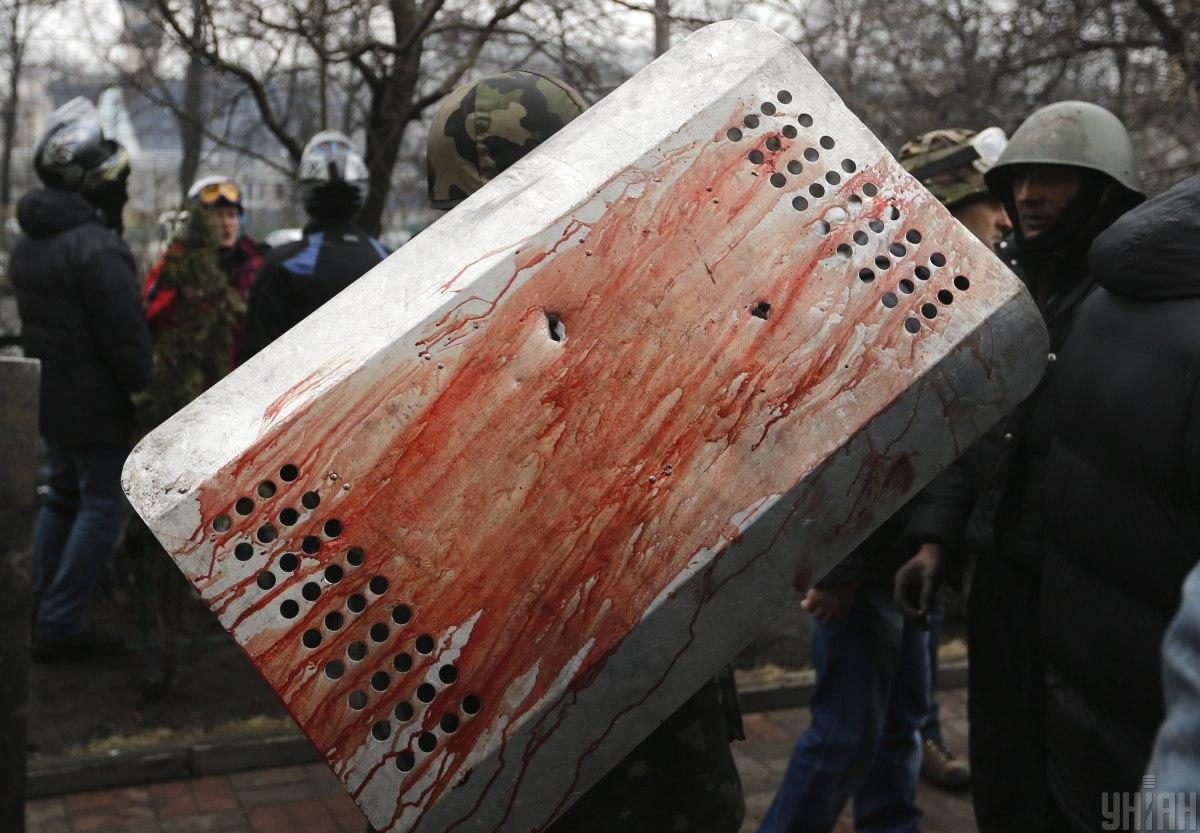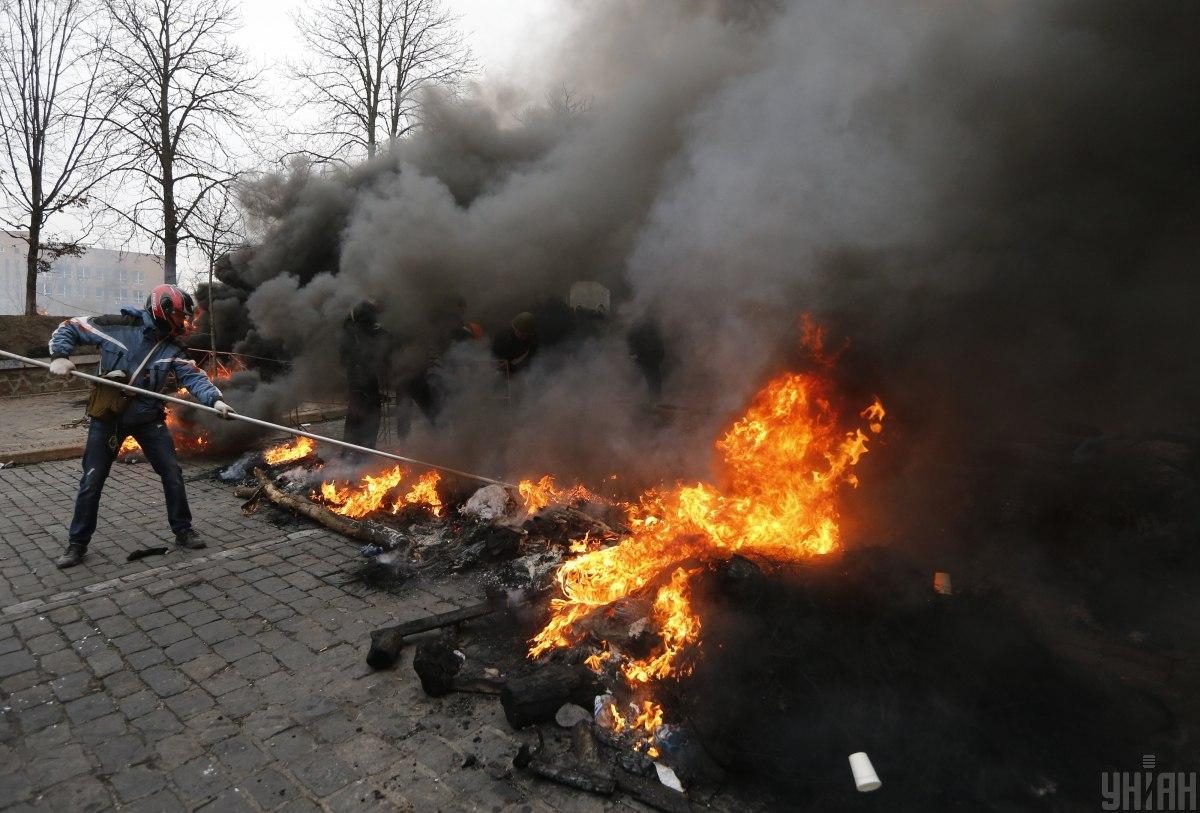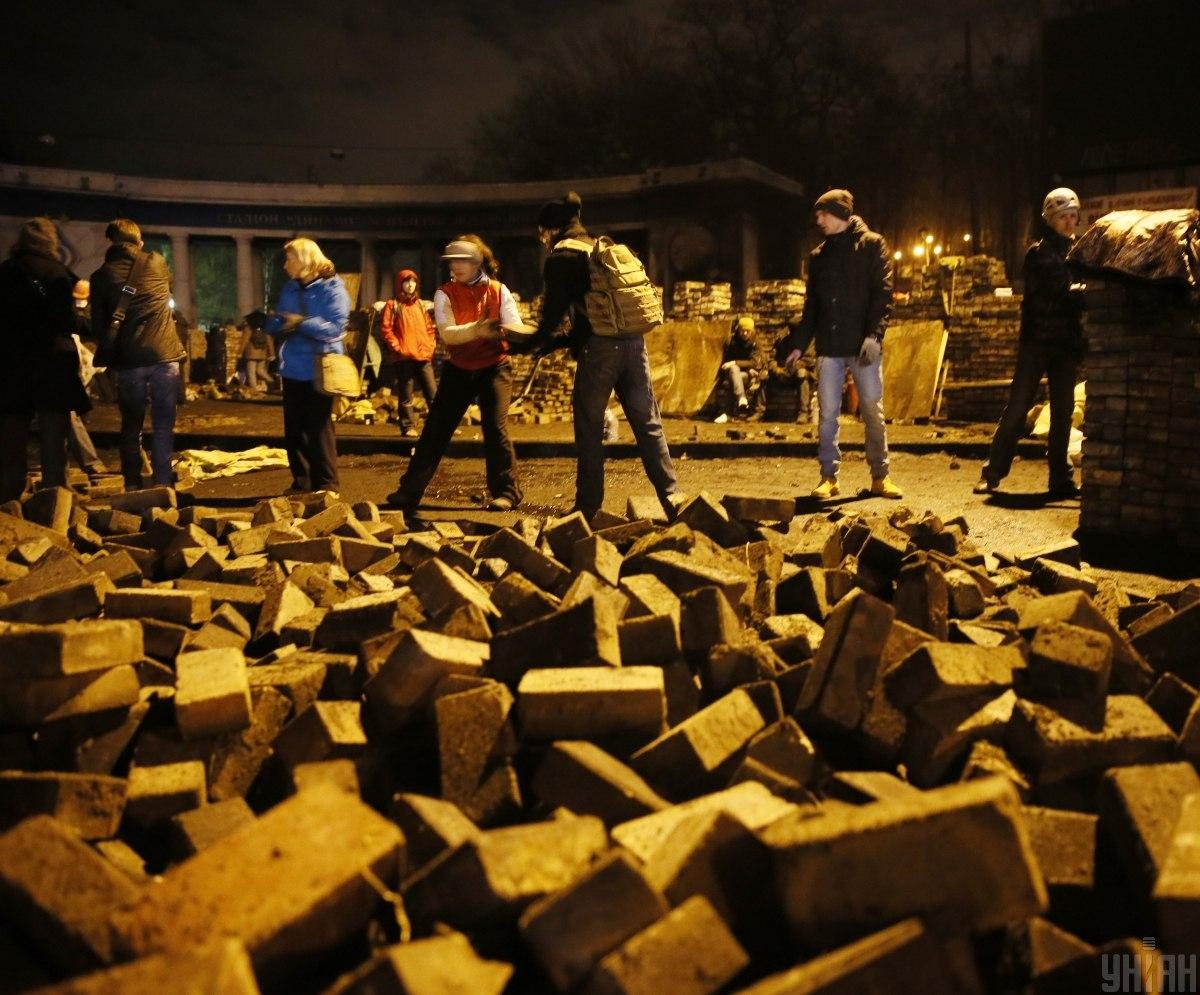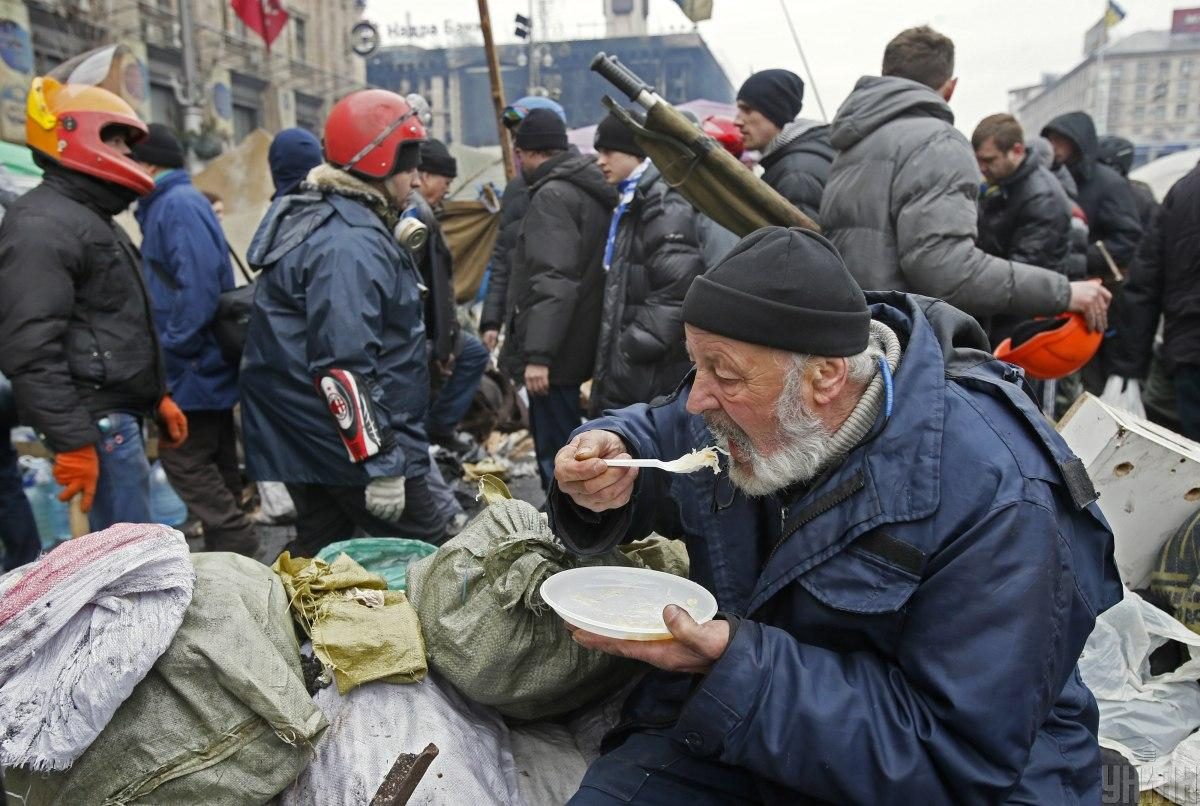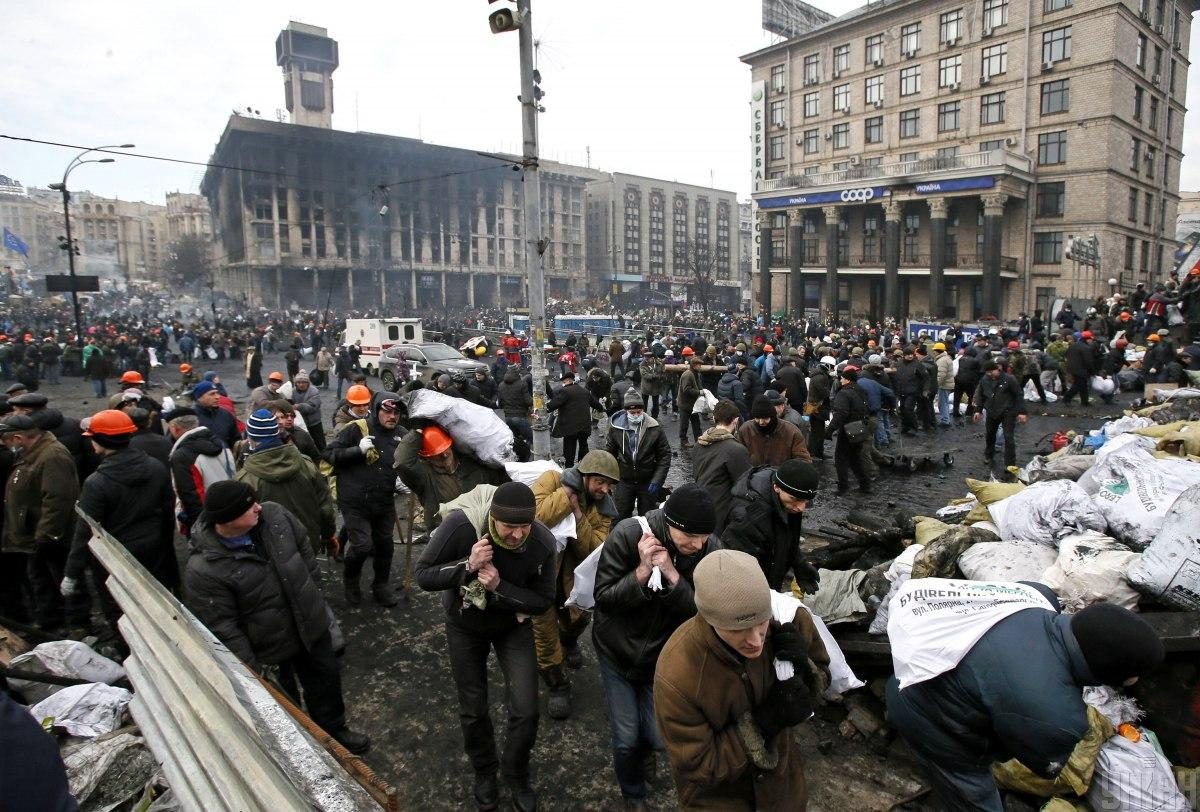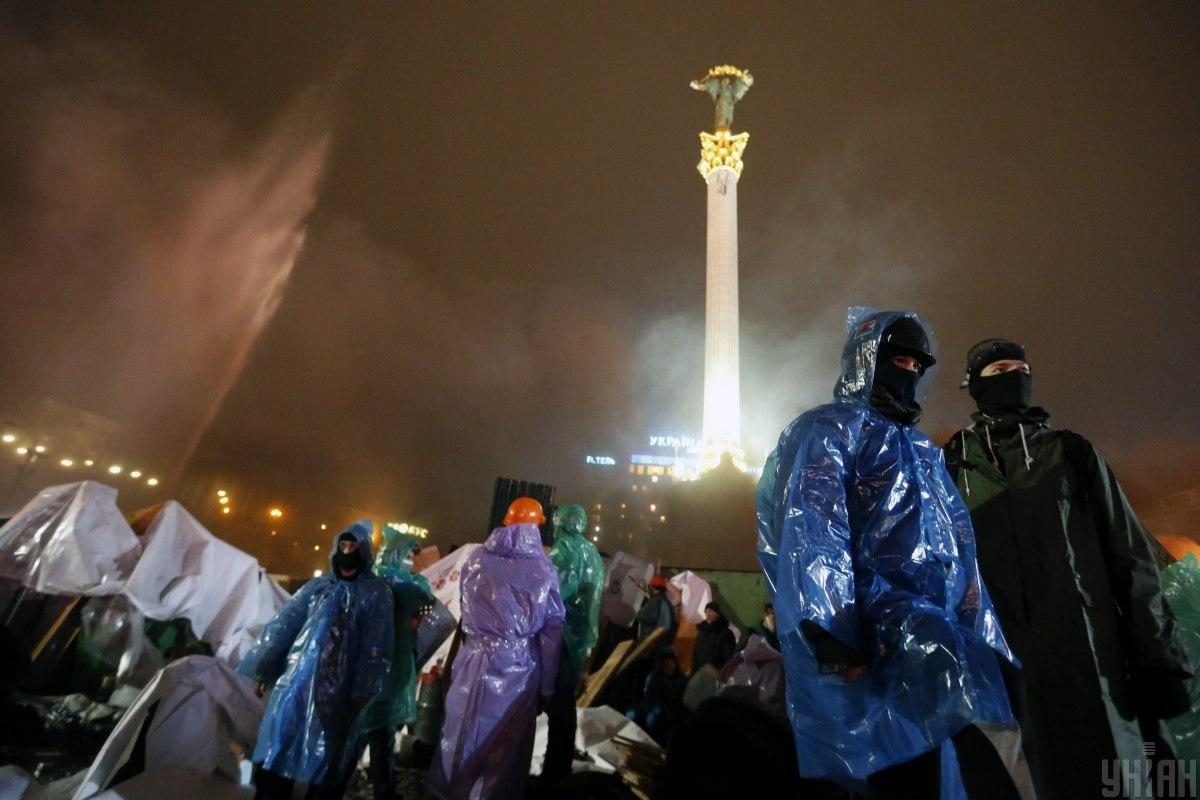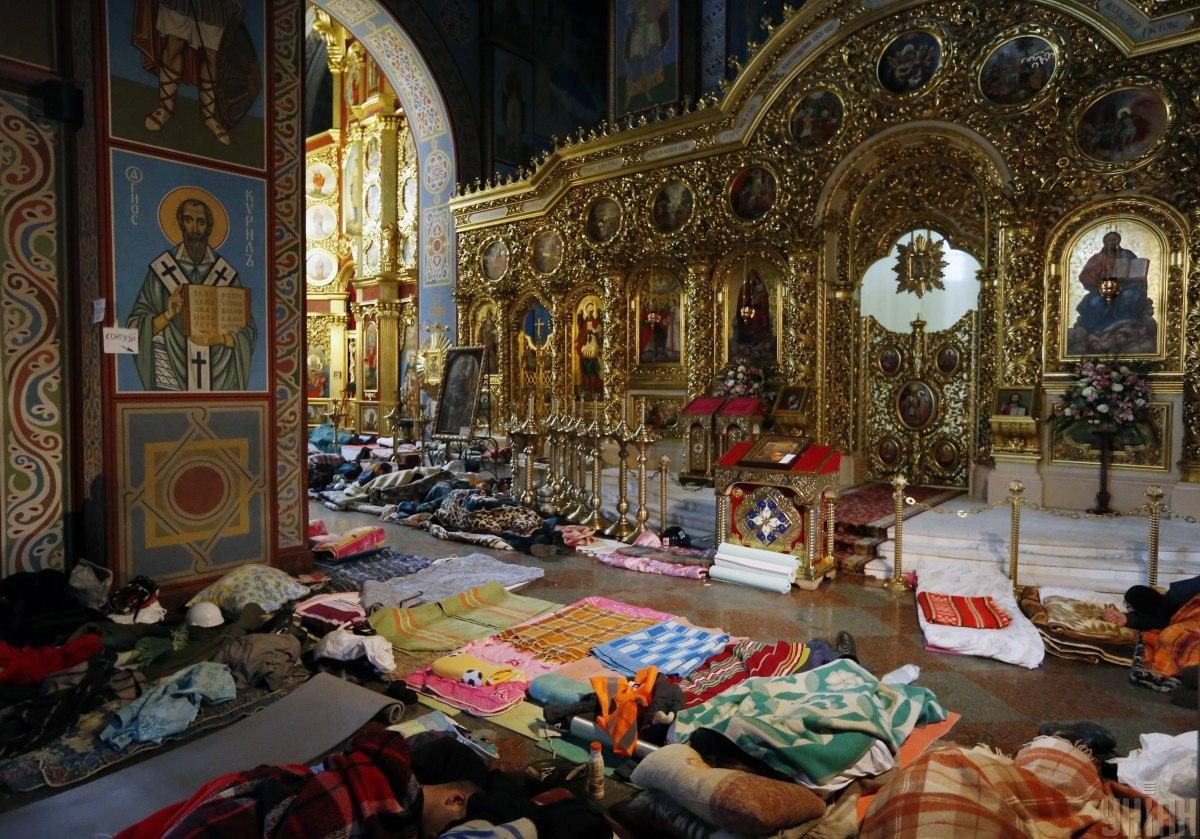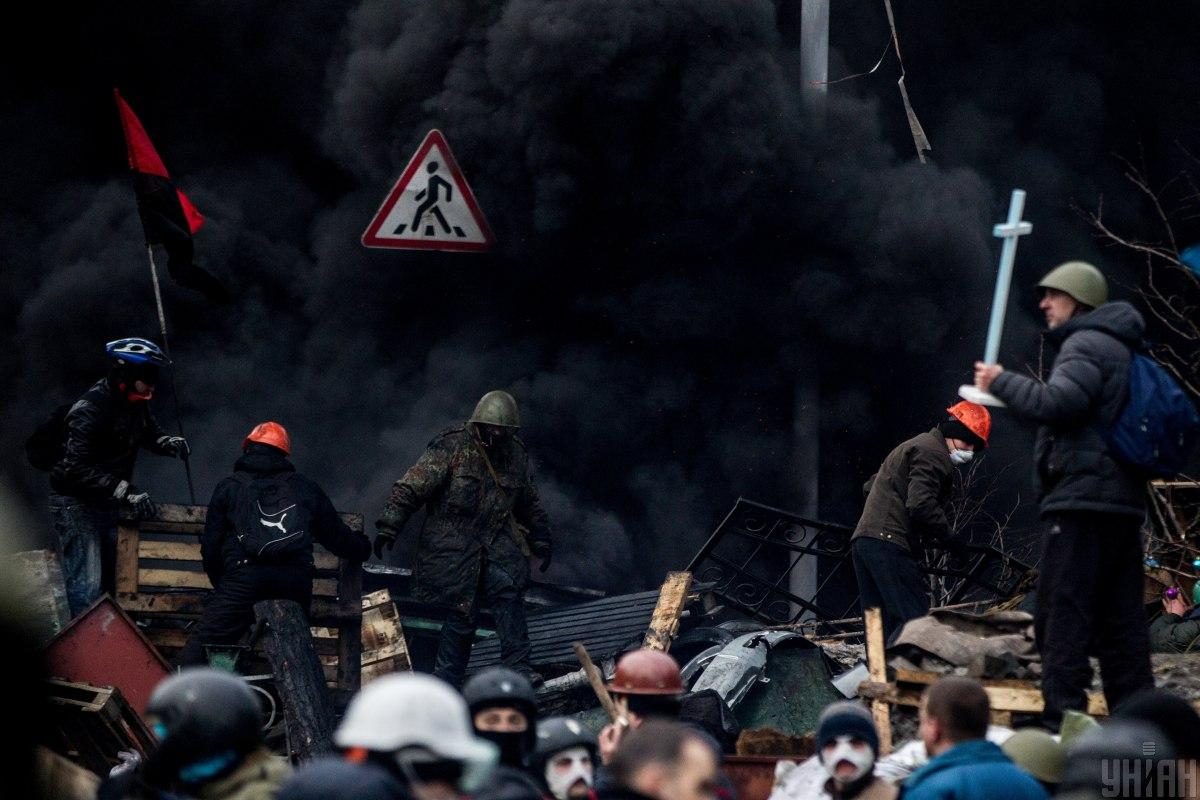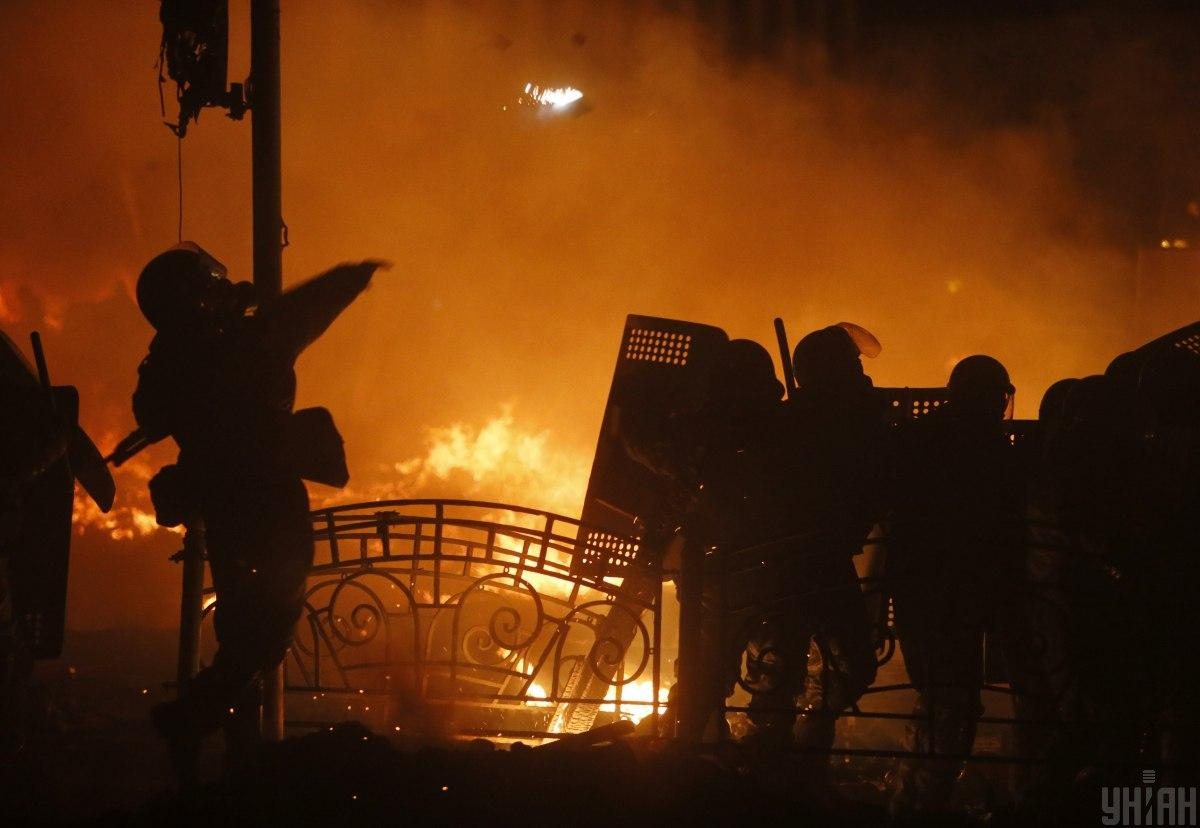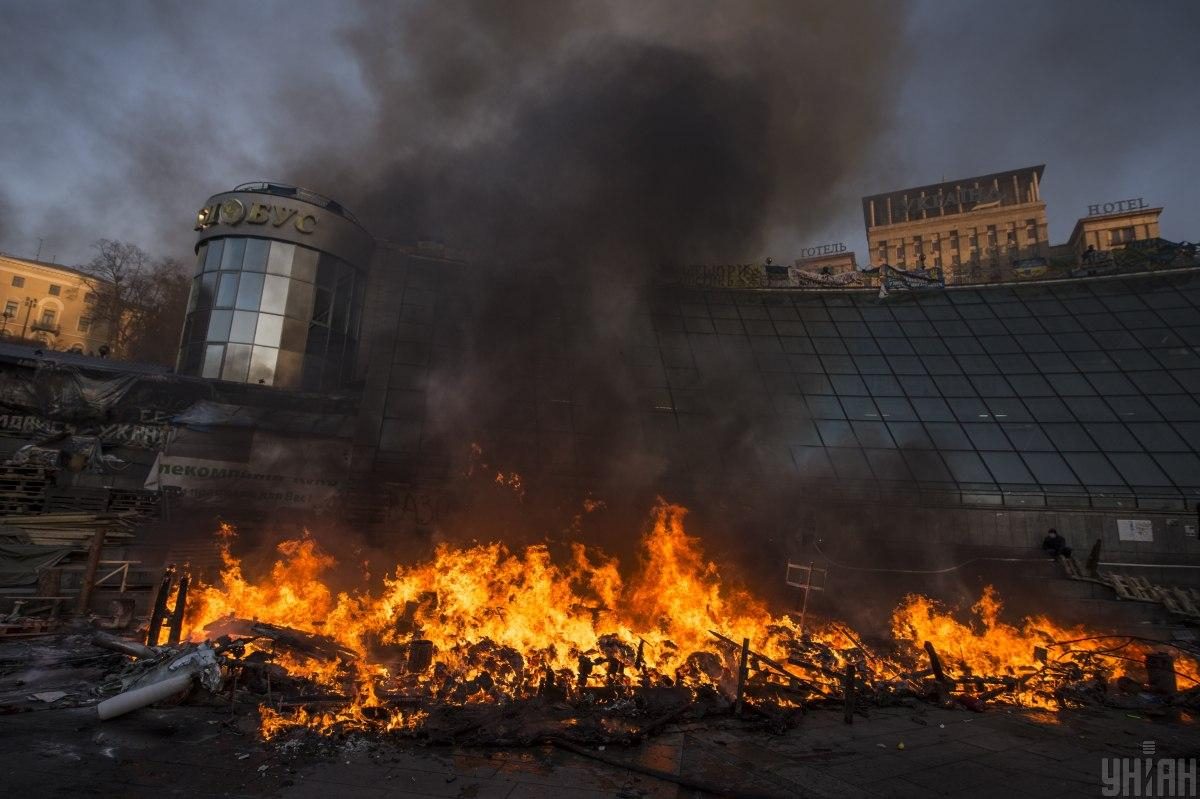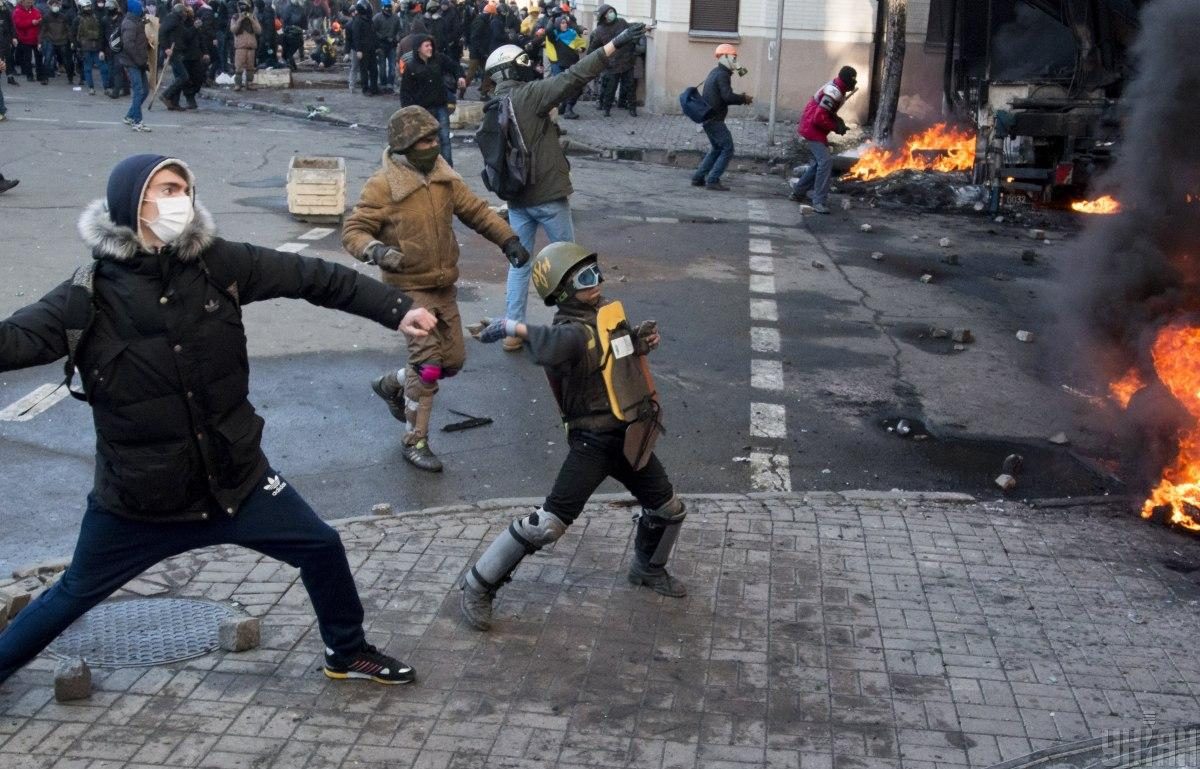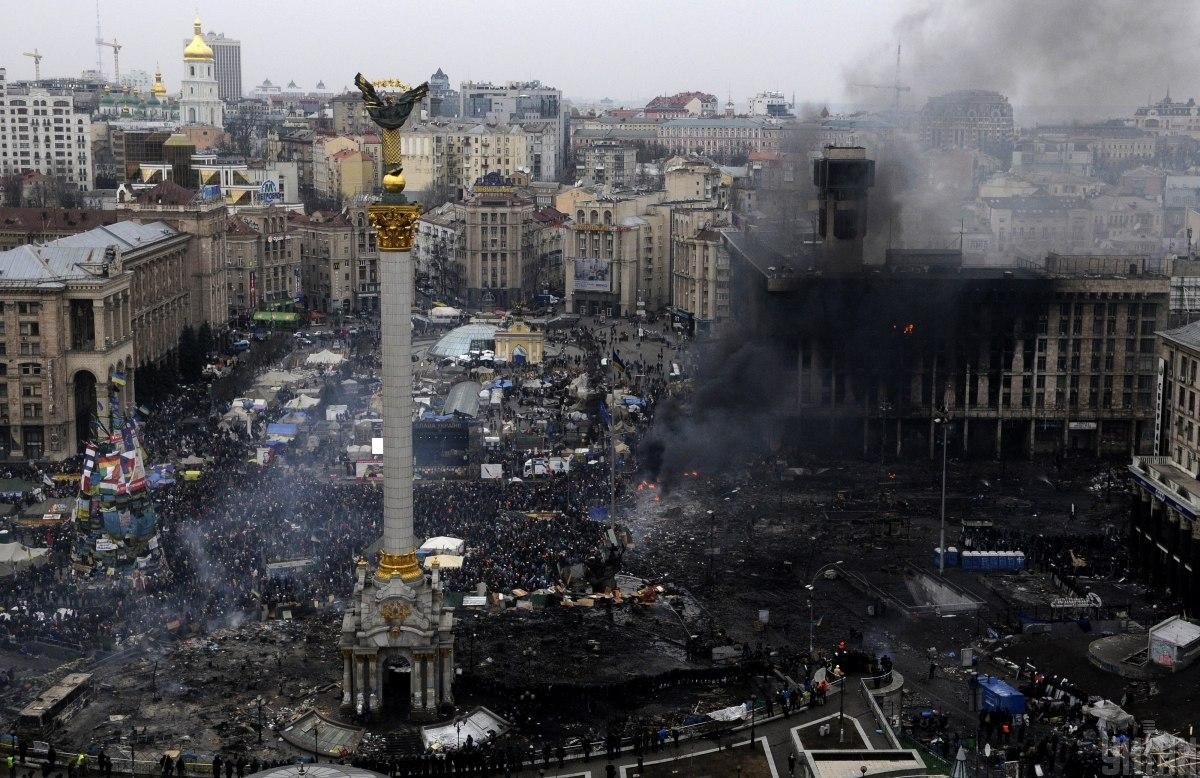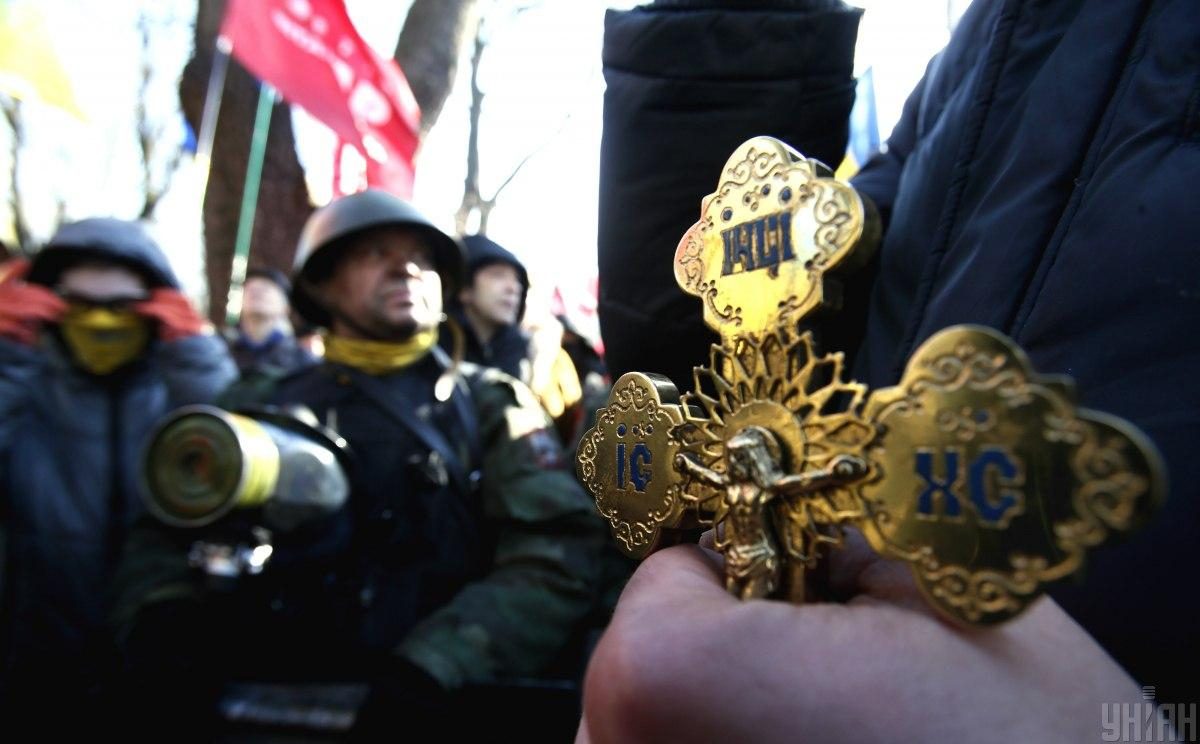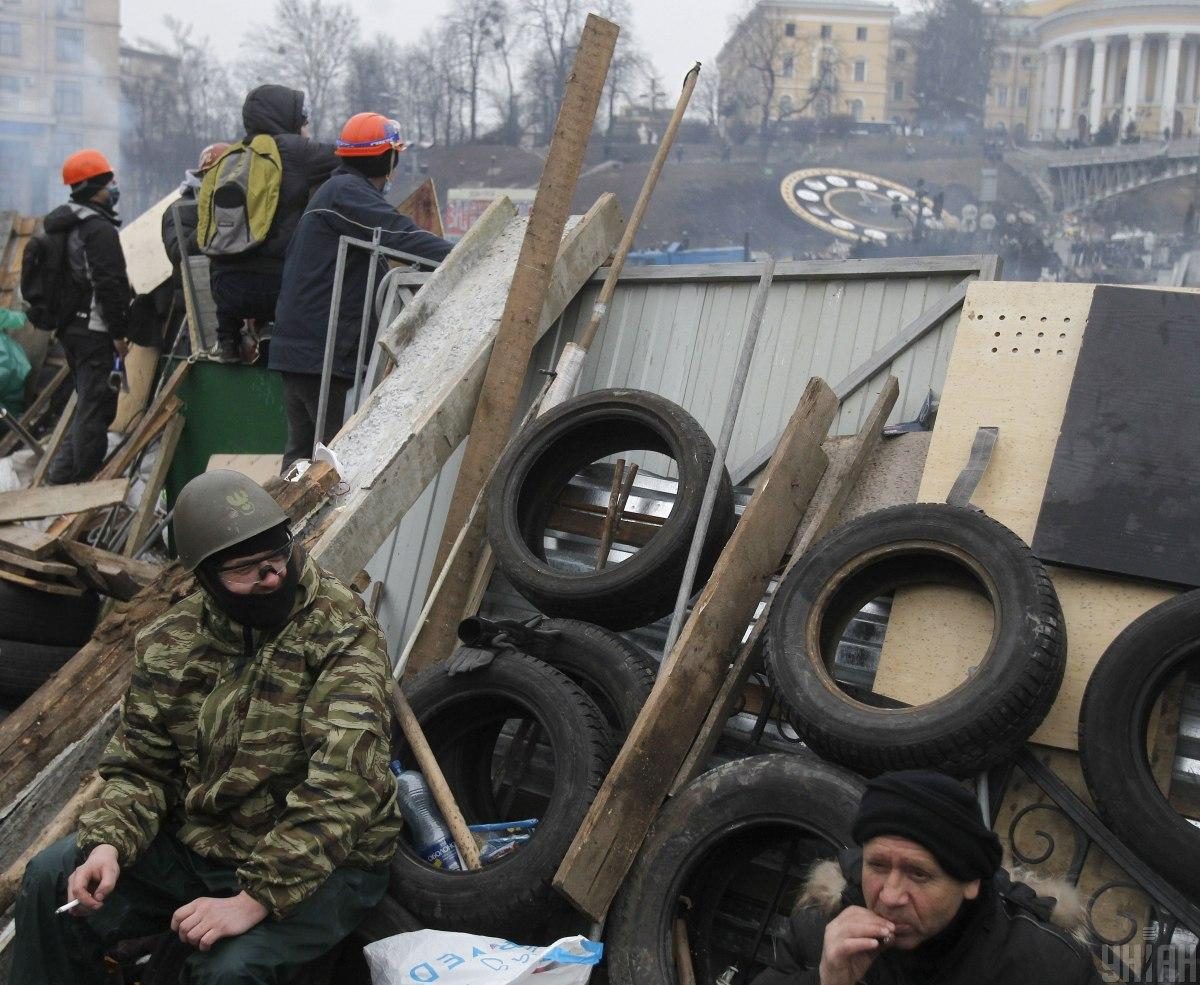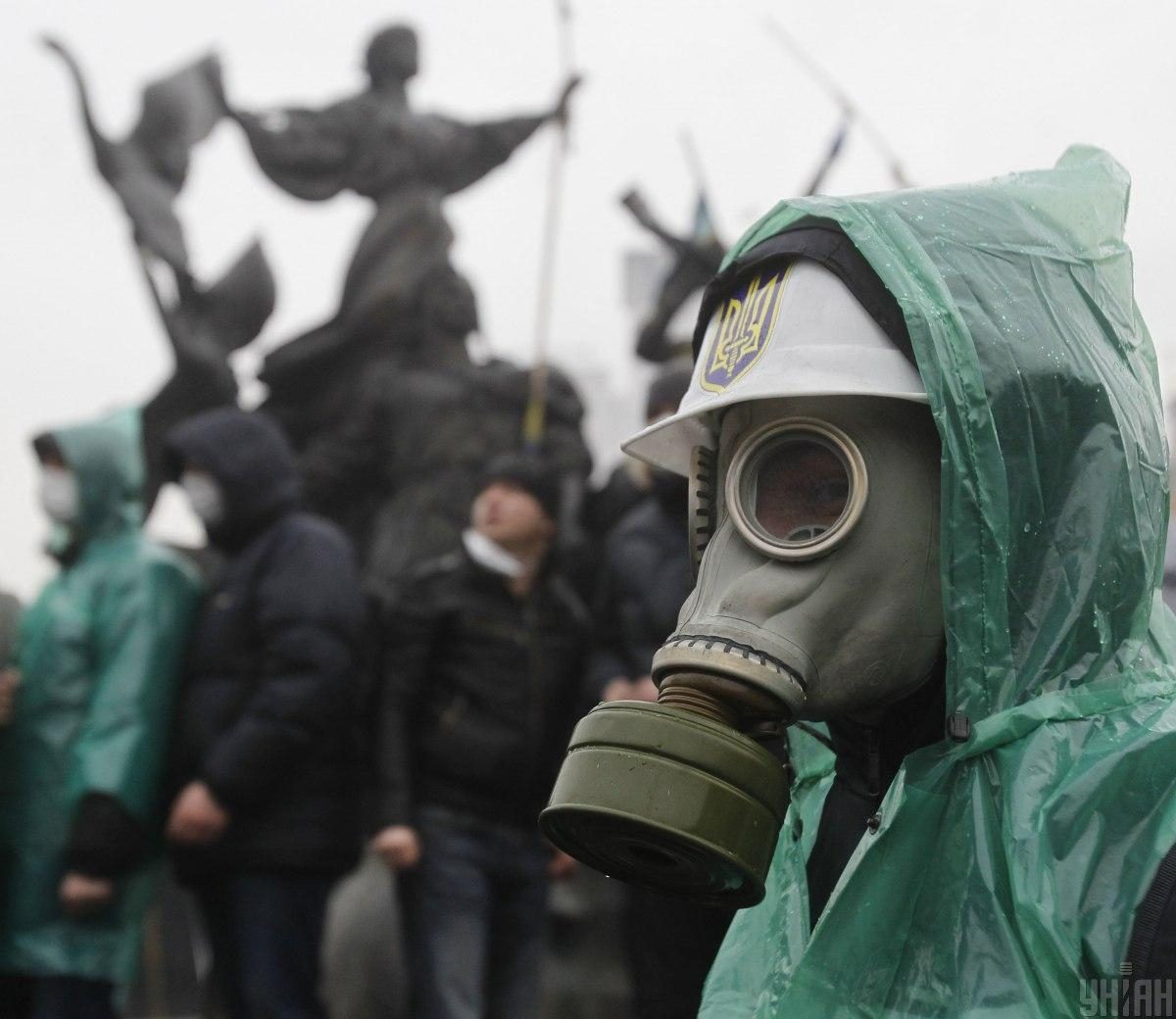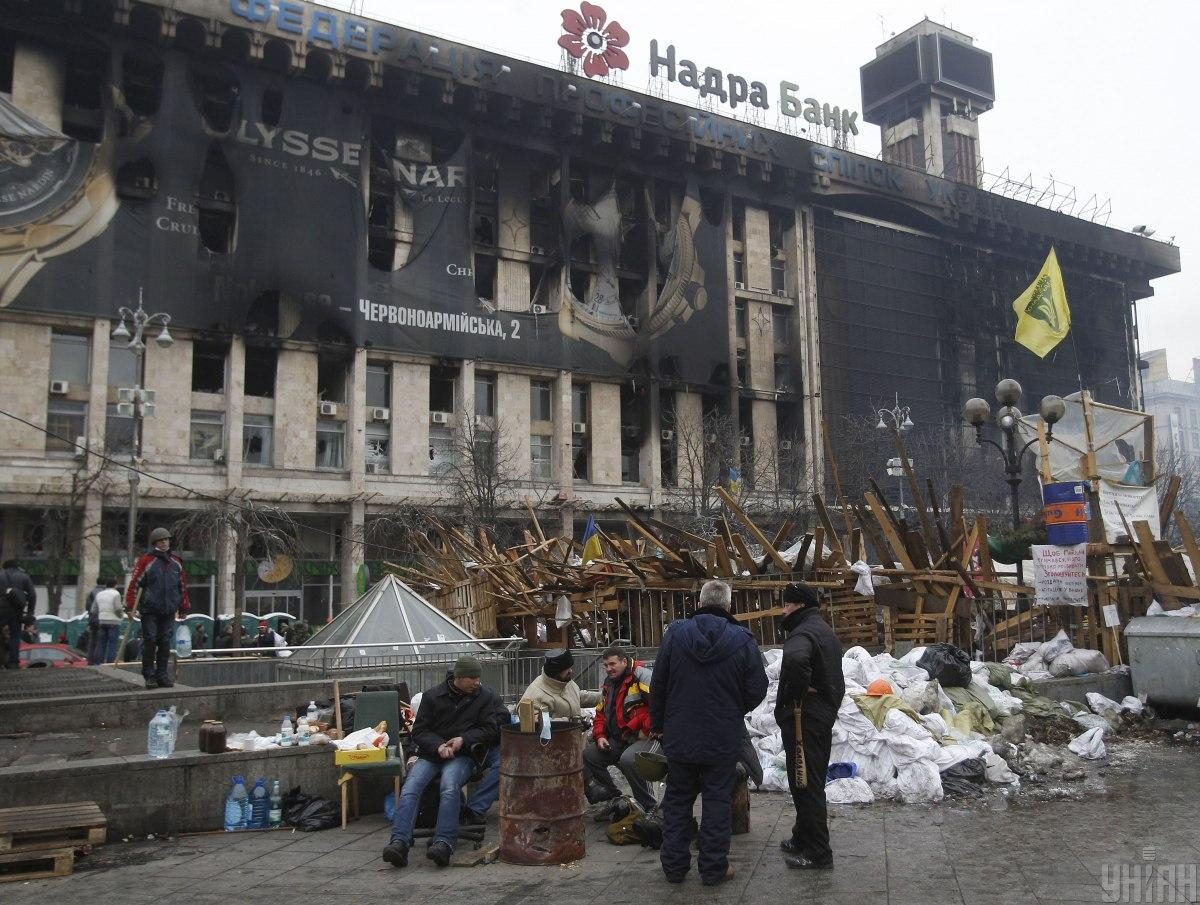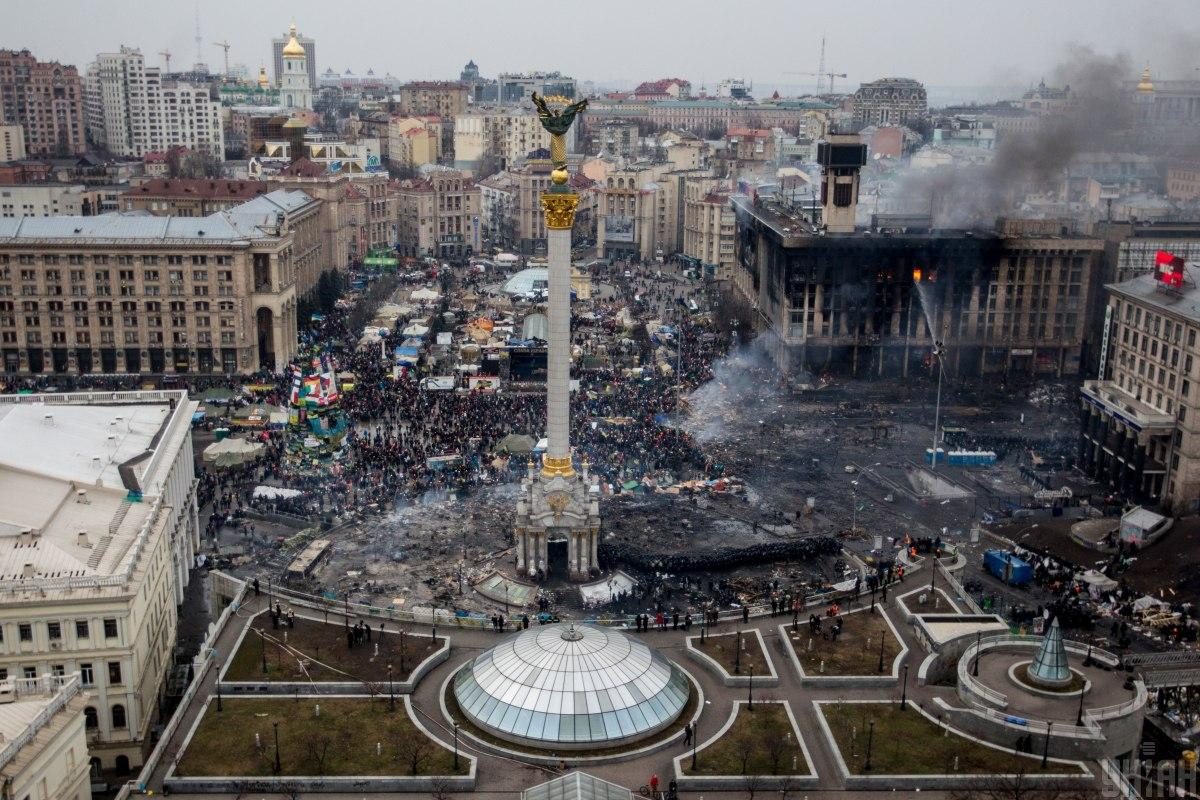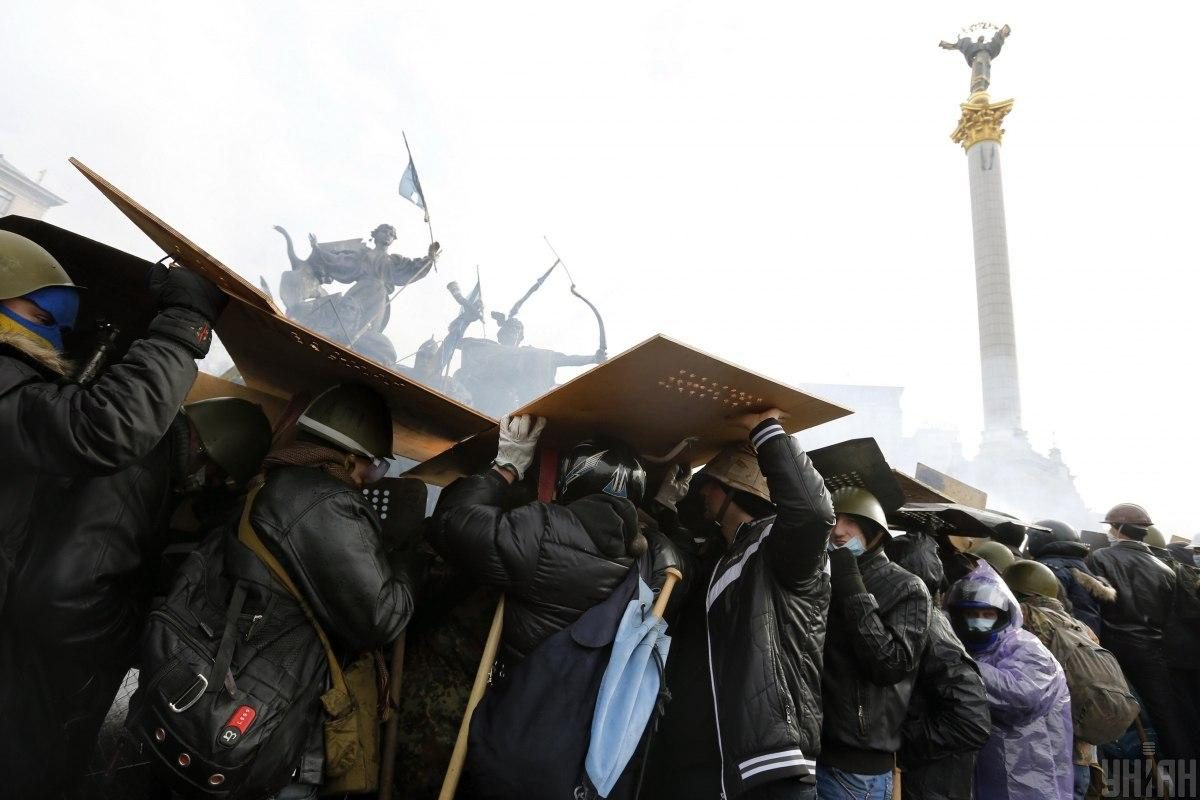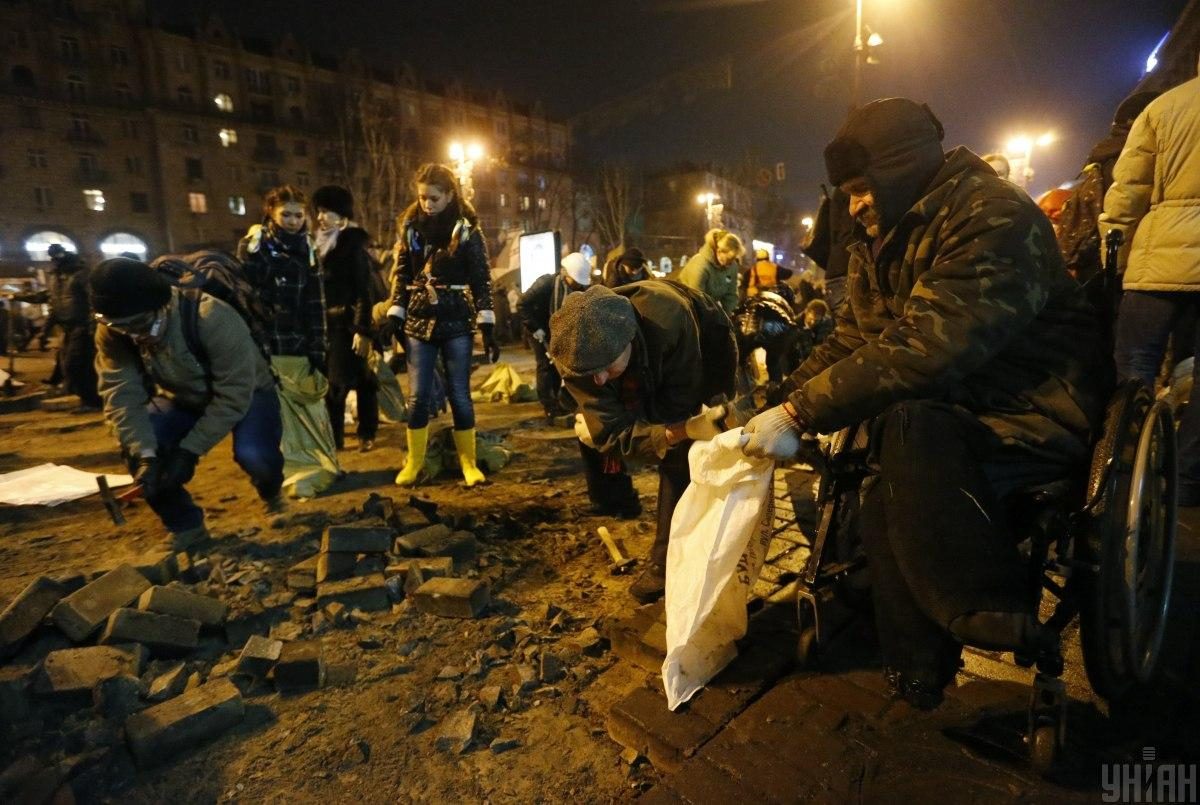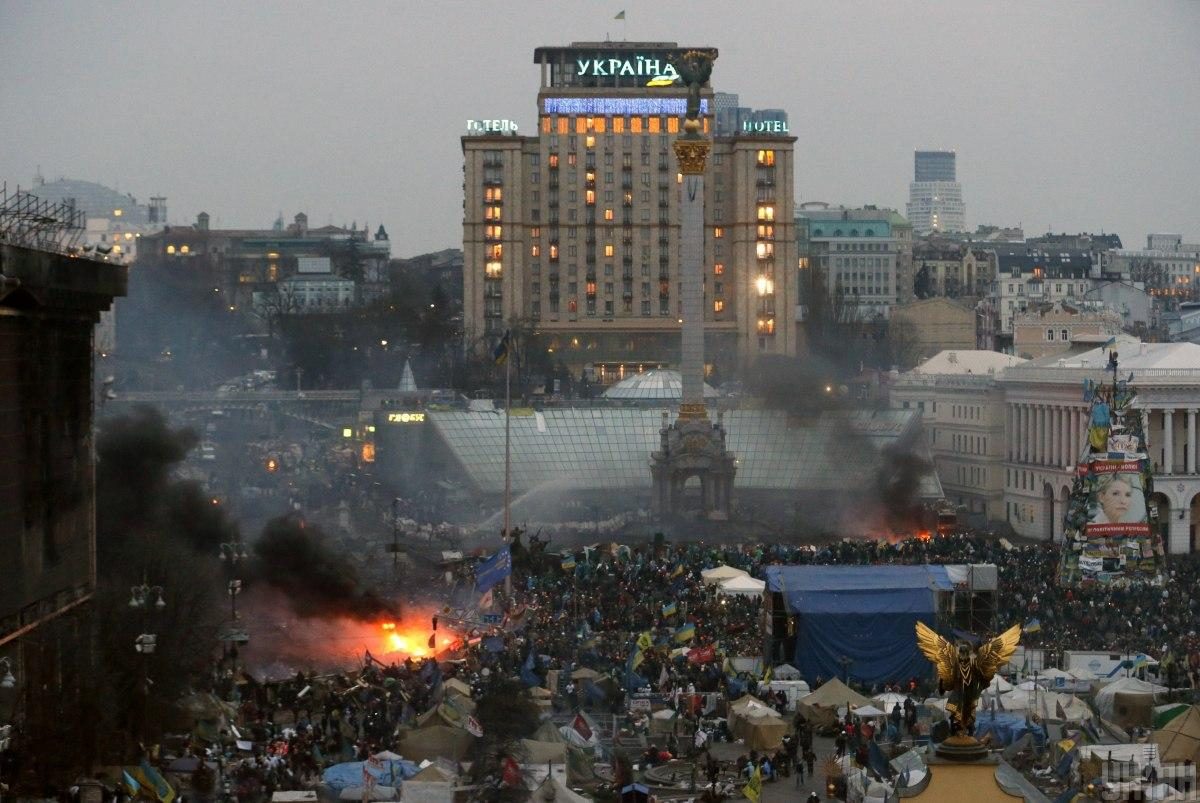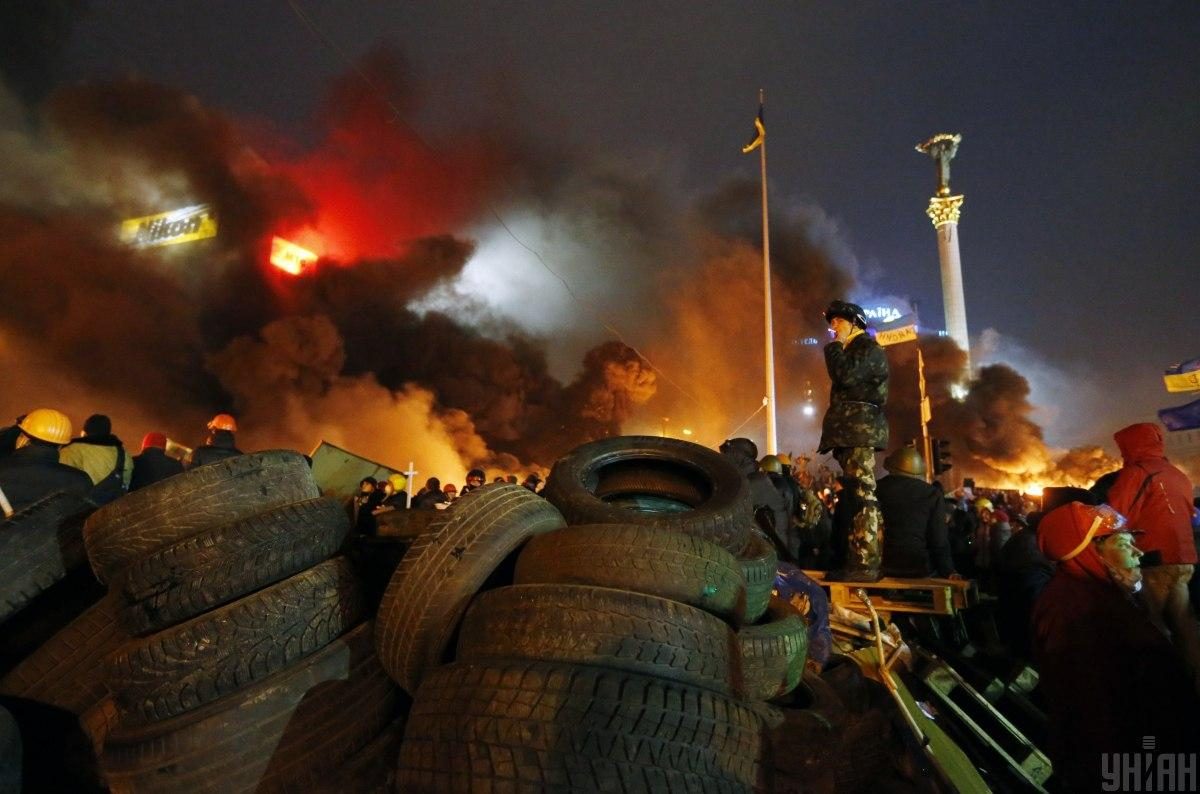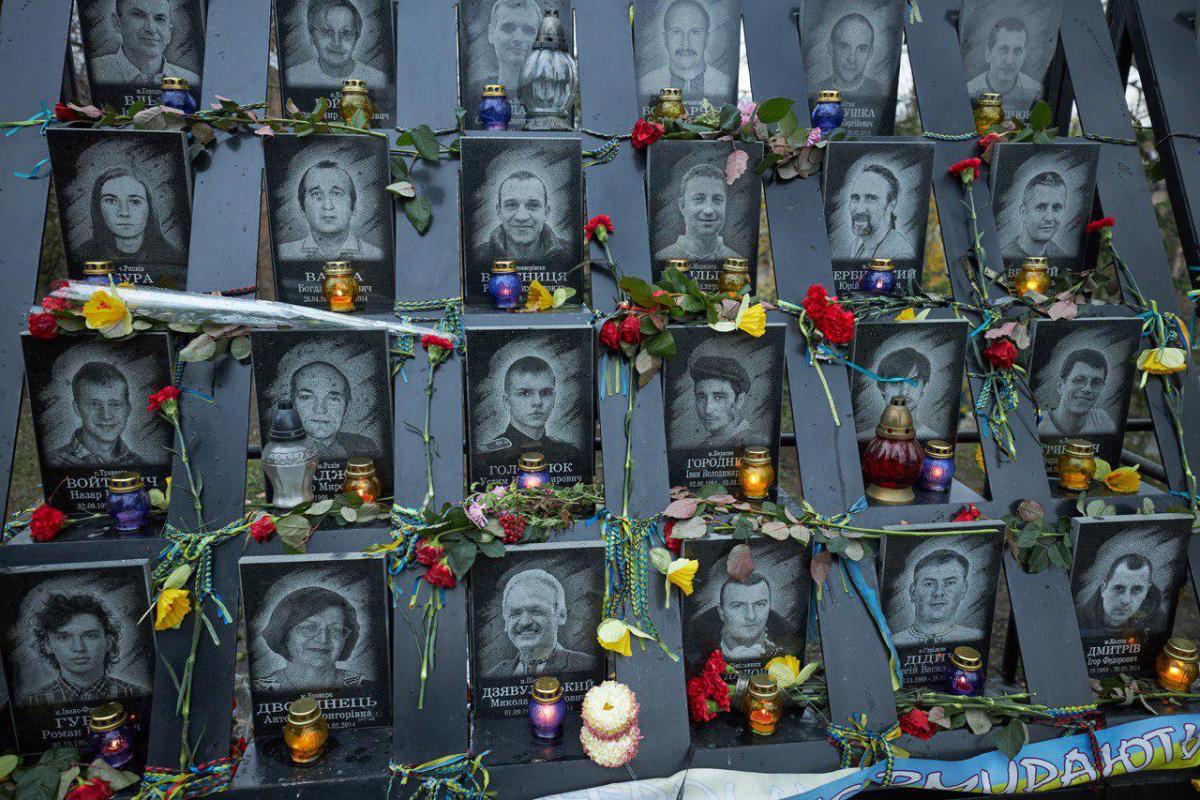
Today, February 20, 2020, Ukraine is honoring the memory of the Heavenly Hundred heroes on the sixth anniversary of bloody shootings at the Maidan Square during the Revolution of Dignity.
On this day six years ago, Ukraine went through the most tragic phase of the Revolution of Dignity.
On February 18-20, 2014, more than a hundred people died downtown Kyiv, several dozen went missing, over a thousand were injured, and hundreds were detained and tortured.
To stop arbitrary moves of the then-authorities, on the morning of February 18, 2014, protesters set for a march toward the Verkhovna Rada of Ukraine, which was named the "Peaceful Offensive." Citizens demanded that the authorities take steps to overcome the crisis and resolve the situation in the country, first of all, limiting the powers of president of Ukraine by amending the Constitution. Police forces, acting on the instruction of law enforcement leadership, grossly violating Ukrainian legislation, applied excessive violence and firearms while dispersing the march alongside the so-called titushkas (hired armed thugs).
As a result, on February 18, 23 people died on Instytutska and Hrushevskoho streets, Kripostny Lane, and Mariinsky Park, while 509 were injured. In September 2014, after the overthrow of the criminal regime, Ukraine opened a probe into the crimes against Maidan protesters.
The shooting began on the morning of February 20 and lasted two hours. Seventy activists were killed that day.
In general, according to the Ukrainian Health Ministry, 82 protesters were killed from February 18 to February 20, 2014.
The events on Instytutska Street became the last turning point of the Revolution of Dignity, after which the Yanukovych regime lost what was left of its support. On the afternoon of February 20, law enforcers in Lviv region and SBU operatives in Zakarpattia region flipped to the side of the protesters. In addition, this day was the beginning of the end of the Party of Regions – the then head of Kyiv City State Administration Volodymyr Makeienko and Chairman of Vinnytsia Regional State Administration Serhiy Tatusiak were among the first officials to leave the party, followed by dozens more "regionals" in the next few days.
An emergency parliament meeting was held late on February 20. At about 22:00, the Verkhovna Rada passed a resolution "On condemning the use of violence, which led to the deaths of civilians in Ukraine." The document declared the actions of law enforcement agencies illegal, banned the use of any types of weapons and special means against participants in protests, and instructed the Cabinet of Ministers, the SBU Security Service of Ukraine, the Ministry of Internal Affairs, the Ministry of Defense and their subordinate security forces to "immediately cease and prevent further use of force." Some 236 MPs backed the resolution, including 35 "regionals" and 35 incumbent lawmakers.
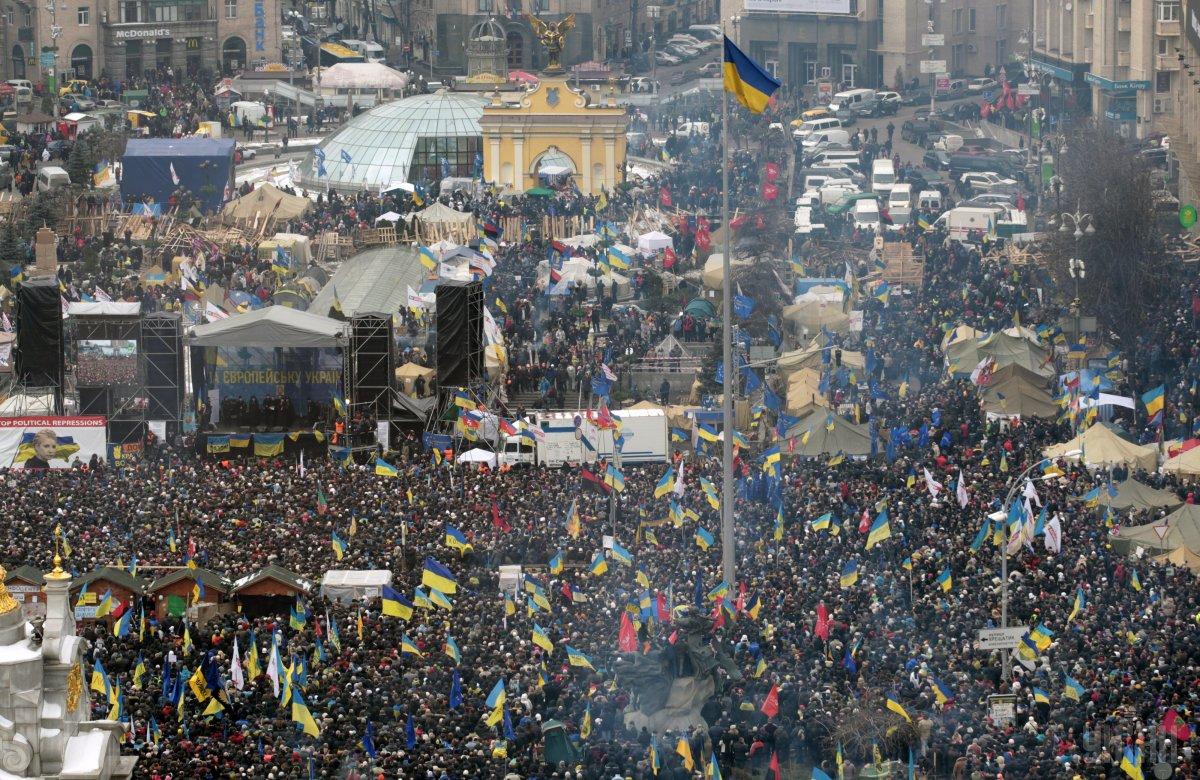
On February 21, 2014, the official authorities of Ukraine legally recognized killed protesters as victims of the Maidan. On this very day, a farewell to the slain activists took place at the Maidan. The victims were collectively named "Heavenly Hundred" in vigil addresses.
On February 22, 2014, a total of 328 MPs removed Viktor Yanukovych from the post of president of Ukraine. In turn, the latter released a televised message to the nation, where he labeled the events of February 18-20 as "coup d'etat" and defied the decisions adopted by the Verkhovna Rada. At the same time, he fled the country along with his family and a number of associates, also taking money and other assets.
At that moment, the Verkhovna Rada finally condemned the actions of the regime of Viktor Yanukovych, and Maidan activists ultimately rejected compromise agreements earlier with the president, who had already begun to prepare his escape from his Mezhyhiria residence.
Finally, as the Ukrainian parliament later admitted, it was on February 20 when Russia began the active phase of the annexation of Crimea.
Today, law enforcement authorities are investigating over 2,000 episodes of crimes at the Maidan, committed from November 21, 2013, to February 21, 2014. Some of the cases were brought to court. Over the years, 442 persons have already been declared suspects, 186 indictments against 288 people have been sent to courts, while 52 persons were found guilty of committing crimes, and 45 were convicted.
The prosecution of the alleged organizers of the Maidan dispersal is an extremely complicated issue since a significant part of them fled the country, in particular, to Russia. Over 90 persons have been declared wanted by the Office of the Prosecutor General in Maidan cases.

